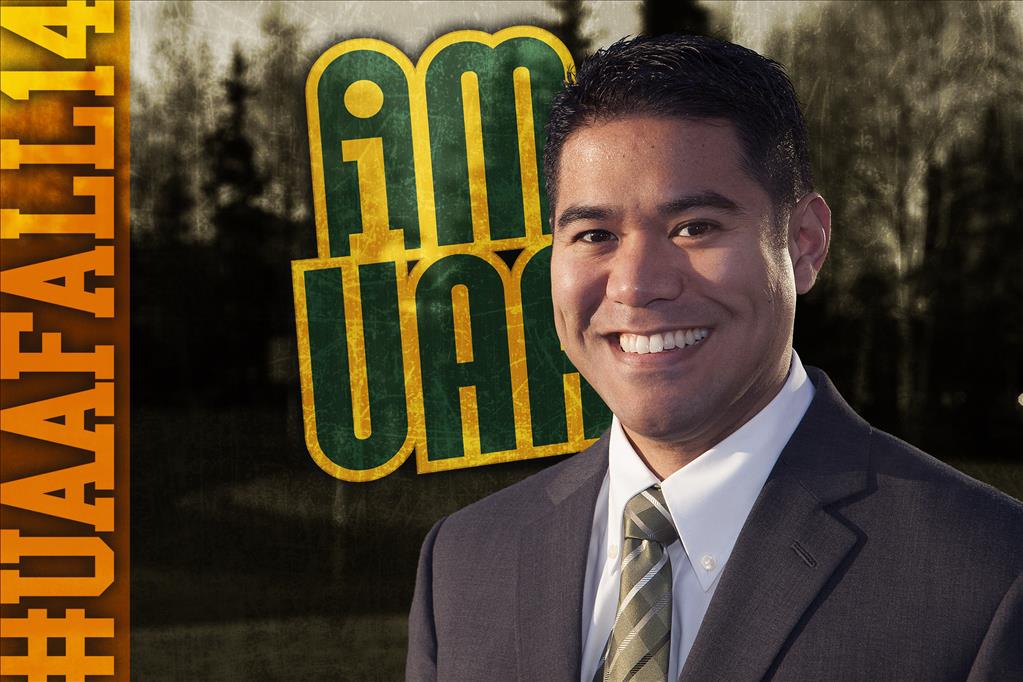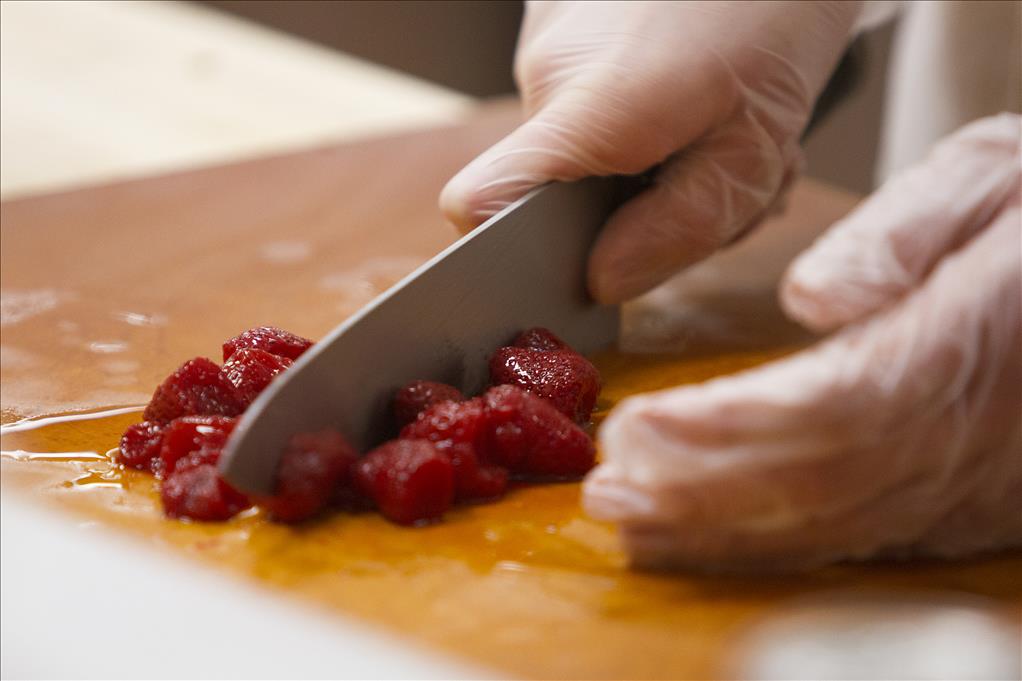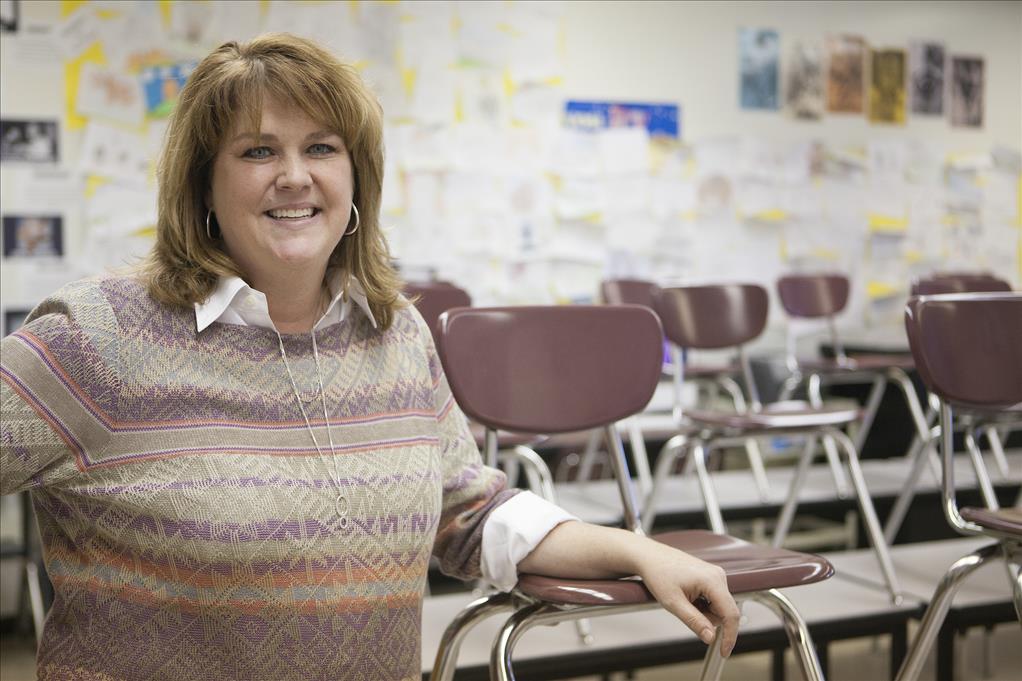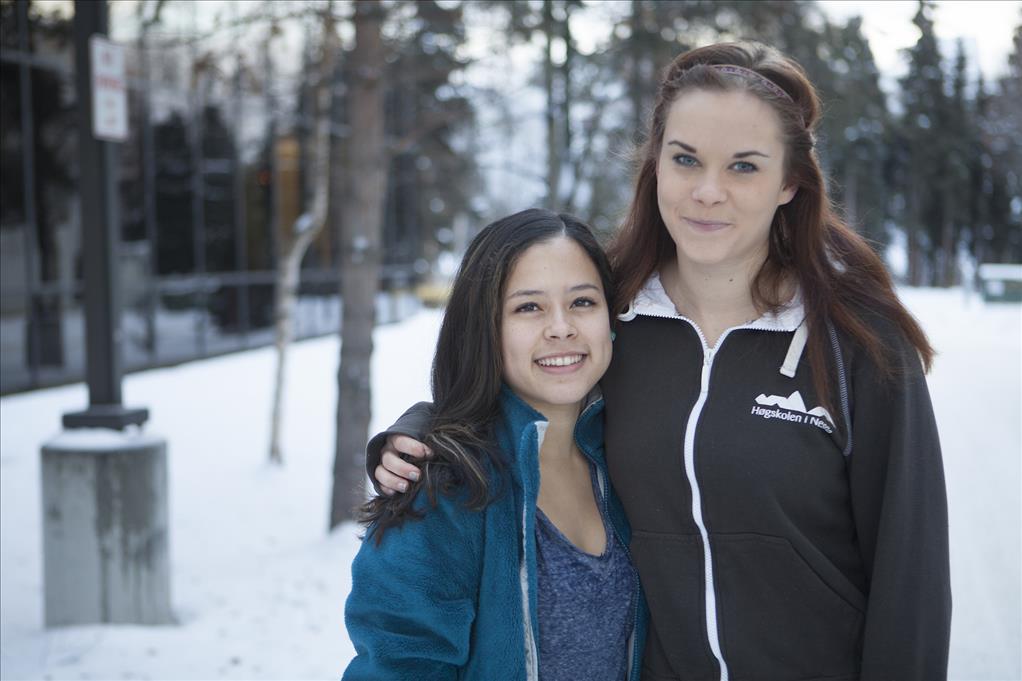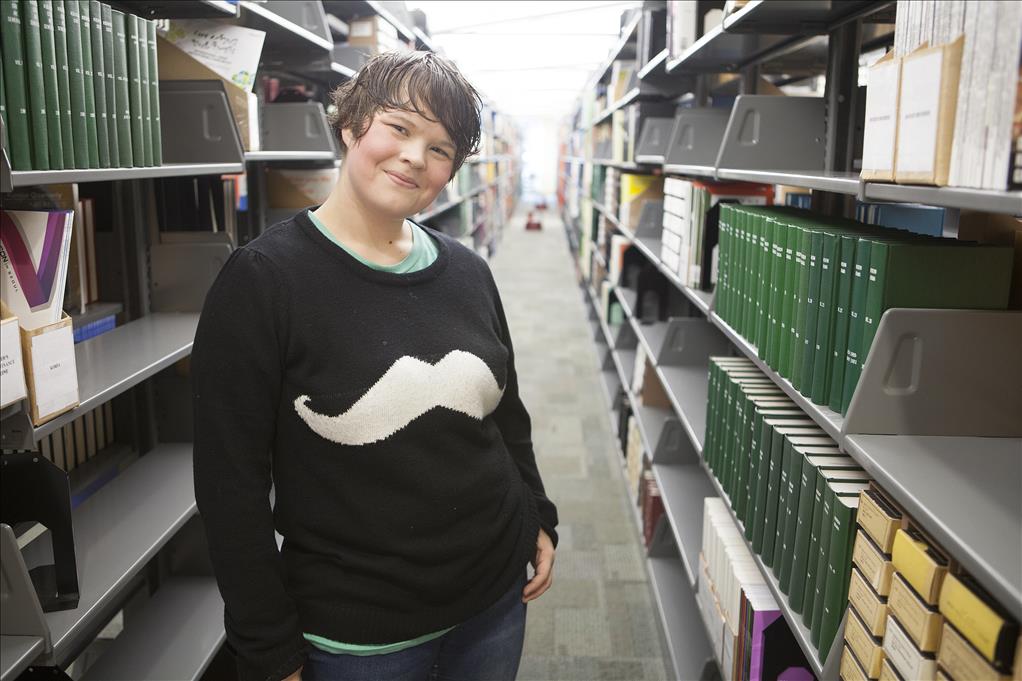Creating a compassionate space
by Tracy Kalytiak |
"My mother said, 'Mya, I love you and I am going to keep holding on, until you realize that I love you no matter what.'" - Excerpt from Mya Dale's own account of coming out to her mother.
The first things you see when looking at photos of Mya Dale are her radiant smile, and eyes that reveal a generous, passionate spirit.
Then, abruptly, on a Wednesday in June 2012, Mya ended her luminous life. She was 21 years old.
"Our challenge from Mya is to help everyone we meet feel safe and accepted unconditionally every chance we get," one of her friends wrote, in an online tribute. "Leave no one behind."
Mya's death moved Maria Bonifacio, UAA's associate director of Residence Life, to meet that challenge.
The American College Personnel Association's Standing Committee for LGBT Awareness recently recognized Bonifacio with its public service award, for forging the university's 27-month-old SafeZone organization into an entity offering solace, allies, friendships and the type of acceptance Mya Dale offered yet, sadly, may not have felt from others.

UAA's SafeZone trainer, Maria Bonifacio, recently won an ACPA public service award for her work with the GLBTQA-awareness program.
"SafeZone was just getting started when Mya died," Maria said. "She read Martin Luther King Jr.'s Nobel Prize acceptance speech so powerfully at the [2012] kickoff for Alaska Civil Rights Month, and she was involved in 'The Family' [the UAA student LGBTQI organization]. Mya had so much potential; her death was tragic."
Reaching out
SafeZone is a program designed to enhance the overall campus community's understanding and awareness of issues faced by LGBTQAI and others in marginalized groups. Its two-hour training sessions take participants through a variety of activities that prep them to become better allies by triggering new ways of thinking and raising awareness of issues that can be sensitive.
Many people who are LGBTQI don't have the opportunity to explore their identity before college and might experience shame instilled by cultural bias, family prejudices and hostility from some faith-based organizations, said Ryan-Jasen Henne, director of UAA's Residence Life and Maria's supervisor. He nominated her for the award.
"SafeZone creates that space for individuals to be that authentic self," Ryan said. "It connects them with resources, answers questions. A person may have never met another queer person before. SafeZone gives physical and emotional space to share their identity-you're normal, you're OK, there are a lot of people like you doing great things on and off campus, participating. You can do that and still be a member of the queer community."

Maria Bonifacio, associate director and residence coordinator for UAA Residence Life,
recently won an ACPA public service award for her work with UAA's SafeZone program.
Photo by Philip Hall/University of Alaska Anchorage
There's a unique aspect to the organization Bonifacio put together, said Ryan, who has previously established and worked in SafeZone organizations at other colleges.
"UAA's SafeZone trains community members, businesses and organizations," Ryan said. "That's best practice. It's just not done like that anywhere else. It's cool. That's one of the main reasons she won the public service award."
UAA Dean of Students Dewain Lee helps support SafeZone. She recently contributed $500 from the Division of Student Development's budget to it; Residence Life gave another $500. The money is used for training SafeZone "allies," showing films either by or about people who are LGBTQI and presenting Drag Queen Bingo and other benefit events.
This semester, Maria said, SafeZone meets every other Friday. Its 30 trainers have offered expertise to groups of people at places like Alaska Pacific University and UAF who want to become allies.
"The thing that comes back from SafeZone is that language is power," Ryan said. "There's a lot of privilege people have without realizing they have it. A man who is able-bodied has more privilege than one who is not able-bodied. It's similar with someone who is affluent and someone who is not from a similar background. What can you do with the privileged status to make a space more meaningful for everybody?"
Growing empathy at UAA
One exercise in SafeZone involves trainers decorating blue, pink, red or yellow "coming-out stars" and writing on each of the star's points the names of a beloved family member, a close friend, a group or community or church the person belongs to, a coveted job, a cherished hope or dream. Each person is assigned an LGBTQI identity.
People with blue stars receive a positive and supportive response when they come out; those with yellow stars receive a hesitant response that gets better with time; people with a pink star receive a mixed response; those with red stars experience repeated rejections. Points of the stars are left untouched, folded or torn off, depending on the experience each person has.
"If you came out to your family and were met with disgust or were disowned, you tear off a corner of the star," Maria said. "Tearing off all the corners of the star and crumpling it, that's someone who committed suicide. It's super powerful. Some trainers who have done this, it still chokes them up."
The suicide aspect of the exercise aims to illustrate that 40 percent of all suicide victims had identified themselves as LGBTQI.
Anchorage might not be a place rocked with violence directed at LGBTQI people, but there are still many people in the area who don't know people who are LGBTQI or issues they face, who don't care, who harbor undercurrents of hostility or stereotypes about those in the LGBTQI community.
"I think Anchorage needs more support, more allies in the community," Maria said. "It's not Portland or Seattle or San Francisco. I would not walk down the street holding my partner's hand."
The environment is more supportive at UAA, Maria said. The UA Board of Regents' 2011 decision to add sexual orientation to Regents' Policy as a protected class helped considerably, she added.
"Every year it's more OK," she said. "It is becoming just a part of our culture. Having more entertainers, athletes and musicians coming out is a good thing. It's not a front-page-headlines, breaking-news spectacle anymore. It's just awesome."
The next SafeZone meeting is scheduled for noon, Feb. 14, in the Leadership Lab, which is located in UAA's Student Union.
Written by Tracy Kalytiak, UAA Office of University Advancement.
 "Creating a compassionate space" is licensed under a Creative Commons Attribution-NonCommercial 4.0 International License.
"Creating a compassionate space" is licensed under a Creative Commons Attribution-NonCommercial 4.0 International License.










